标签:mat 标识 return 无法访问 基本数据类型 park 崩溃 submit array
public class MyRunnable implements Runnable { public void run() { // ... } } public static void main(String[] args) { MyRunnable instance = new MyRunnable(); Thread thread = new Thread(instance); thread.start(); }
public class MyCallable implements Callable<Integer> { public Integer call() { return 123; } } public static void main(String[] args) throws ExecutionException, InterruptedException { MyCallable mc = new MyCallable(); FutureTask<Integer> ft = new FutureTask<>(mc); Thread thread = new Thread(ft); thread.start(); System.out.println(ft.get()); }
public static void main(String[] args) { ExecutorService executorService = Executors.newCachedThreadPool(); for (int i = 0; i < 5; i++) { executorService.execute(new MyRunnable()); } executorService.shutdown(); }
public static void main(String[] args) { Thread thread = new Thread(new MyRunnable()); thread.setDaemon(true); }
public void run() { try { Thread.sleep(3000); } catch (InterruptedException e) { e.printStackTrace(); }
public void run() { Thread.yield(); }
public class InterruptExample { private static class MyThread1 extends Thread { @Override public void run() { try { Thread.sleep(2000); System.out.println("Thread run"); } catch (InterruptedException e) { e.printStackTrace(); } } } }
public static void main(String[] args) throws InterruptedException { Thread thread1 = new MyThread1(); thread1.start(); thread1.interrupt(); System.out.println("Main run"); }
Main run java.lang.InterruptedException: sleep interrupted at java.lang.Thread.sleep(Native Method) at InterruptExample.lambda$main$0(InterruptExample.java:5) at InterruptExample$$Lambda$1/713338599.run(Unknown Source) at java.lang.Thread.run(Thread.java:745)
public class InterruptExample { private static class MyThread2 extends Thread { @Override public void run() { while (!interrupted()) { // .. } System.out.println("Thread end"); } } }
public static void main(String[] args) throws InterruptedException { Thread thread2 = new MyThread2(); thread2.start(); thread2.interrupt(); } Thread end
public static void main(String[] args) { ExecutorService executorService = Executors.newCachedThreadPool(); executorService.execute(() -> { try { Thread.sleep(2000); System.out.println("Thread run"); } catch (InterruptedException e) { e.printStackTrace(); } }); executorService.shutdownNow(); System.out.println("Main run"); }
Main run java.lang.InterruptedException: sleep interrupted at java.lang.Thread.sleep(Native Method) at ExecutorInterruptExample.lambda$main$0(ExecutorInterruptExample.java:9) at ExecutorInterruptExample$$Lambda$1/1160460865.run(Unknown Source) at java.util.concurrent.ThreadPoolExecutor.runWorker(ThreadPoolExecutor.java:1142) at java.util.concurrent.ThreadPoolExecutor$Worker.run(ThreadPoolExecutor.java:617) at java.lang.Thread.run(Thread.java:745)
Future<?> future = executorService.submit(() -> { // .. }); future.cancel(true);
五、互斥同步
public void func() { synchronized (this) { // ... } }
public class SynchronizedExample { public void func1() { synchronized (this) { for (int i = 0; i < 10; i++) { System.out.print(i + " "); } } } }
public static void main(String[] args) { SynchronizedExample e1 = new SynchronizedExample(); ExecutorService executorService = Executors.newCachedThreadPool(); executorService.execute(() -> e1.func1()); executorService.execute(() -> e1.func1()); }
0 1 2 3 4 5 6 7 8 9 0 1 2 3 4 5 6 7 8 9
public static void main(String[] args) { SynchronizedExample e1 = new SynchronizedExample(); SynchronizedExample e2 = new SynchronizedExample(); ExecutorService executorService = Executors.newCachedThreadPool(); executorService.execute(() -> e1.func1()); executorService.execute(() -> e2.func1()); }
0 0 1 1 2 2 3 3 4 4 5 5 6 6 7 7 8 8 9 9
public synchronized void func () { // ... }
public void func() { synchronized (SynchronizedExample.class) { // ... } }
public class SynchronizedExample { public void func2() { synchronized (SynchronizedExample.class) { for (int i = 0; i < 10; i++) { System.out.print(i + " "); } } } }
public static void main(String[] args) { SynchronizedExample e1 = new SynchronizedExample(); SynchronizedExample e2 = new SynchronizedExample(); ExecutorService executorService = Executors.newCachedThreadPool(); executorService.execute(() -> e1.func2()); executorService.execute(() -> e2.func2()); }
0 1 2 3 4 5 6 7 8 9 0 1 2 3 4 5 6 7 8 9
public synchronized static void fun() { // ... }
public class LockExample { private Lock lock = new ReentrantLock(); public void func() { lock.lock(); try { for (int i = 0; i < 10; i++) { System.out.print(i + " "); } } finally { lock.unlock(); // 确保释放锁,从而避免发生死锁。 } } }
public static void main(String[] args) { LockExample lockExample = new LockExample(); ExecutorService executorService = Executors.newCachedThreadPool(); executorService.execute(() -> lockExample.func()); executorService.execute(() -> lockExample.func()); }
0 1 2 3 4 5 6 7 8 9 0 1 2 3 4 5 6 7 8 9
在解决死锁问题的时候,提出了一个破坏不可抢占条件方案,但是这个方案 synchronized 没有办法解决。原因是 synchronized 申请资源的时候,如果申请不到,线程直接进入阻塞状态了,而线程进入阻塞状态,啥都干不了,也释放不了线程已经占有的资源。但我们希望的是:
如果我们重新设计一把互斥锁去解决这个问题,那该怎么设计呢?我觉得有三种方案。对于“不可抢占”这个条件,占用部分资源的线程进一步申请其他资源时,如果申请不到,可以主动释放它占有的资源,这样不可抢占这个条件就破坏掉了。
这三种方案可以全面弥补 synchronized 的问题。到这里相信你应该也能理解了,这三个方案就是“重复造轮子”的主要原因,体现在 API 上,就是 Lock 接口的三个方法。详情如下:
// 支持中断的 API void lockInterruptibly() throws InterruptedException; // 支持超时的 API boolean tryLock(long time, TimeUnit unit)throws InterruptedException; // 支持非阻塞获取锁的 API boolean tryLock();
public class JoinExample { private class A extends Thread { @Override public void run() { System.out.println("A"); } } private class B extends Thread { private A a; B(A a) { this.a = a; } @Override public void run() { try { a.join(); } catch (InterruptedException e) { e.printStackTrace(); } System.out.println("B"); } } public void test() { A a = new A(); B b = new B(a); b.start(); a.start(); } }
public static void main(String[] args) { JoinExample example = new JoinExample(); example.test(); }
A
B
public class WaitNotifyExample { public synchronized void before() { System.out.println("before"); notifyAll(); } public synchronized void after() { try { wait(); } catch (InterruptedException e) { e.printStackTrace(); } System.out.println("after"); } }
public static void main(String[] args) { ExecutorService executorService = Executors.newCachedThreadPool(); WaitNotifyExample example = new WaitNotifyExample(); executorService.execute(() -> example.after()); executorService.execute(() -> example.before()); }
before
after
public class AwaitSignalExample { private Lock lock = new ReentrantLock(); private Condition condition = lock.newCondition(); public void before() { lock.lock(); try { System.out.println("before"); condition.signalAll(); } finally { lock.unlock(); } } public void after() { lock.lock(); try { condition.await(); System.out.println("after"); } catch (InterruptedException e) { e.printStackTrace(); } finally { lock.unlock(); } } }
public static void main(String[] args) { ExecutorService executorService = Executors.newCachedThreadPool(); AwaitSignalExample example = new AwaitSignalExample(); executorService.execute(() -> example.after()); executorService.execute(() -> example.before()); }
before
after
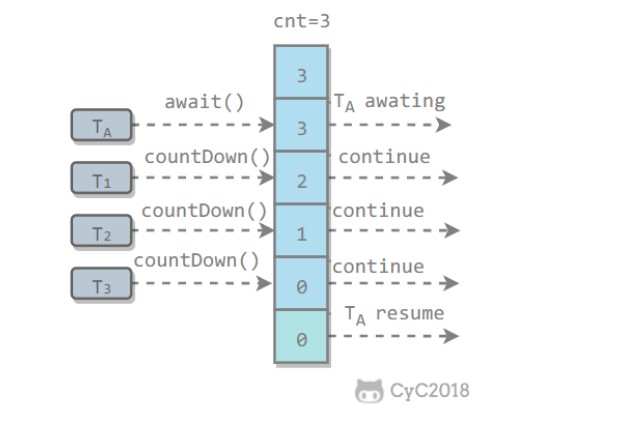
public class CountdownLatchExample { public static void main(String[] args) throws InterruptedException { final int totalThread = 10; CountDownLatch countDownLatch = new CountDownLatch(totalThread); ExecutorService executorService = Executors.newCachedThreadPool(); for (int i = 0; i < 12; i++) { executorService.execute(() -> { System.out.print("run.."); countDownLatch.countDown(); }); } countDownLatch.await(); System.out.println("end"); executorService.shutdown(); } }
run..run..run..run..run..run..run..run..run..run..run..end
run..
示例:引用自http://aaron-han.iteye.com/blog/1591755
1. 有五个人,一个裁判。这五个人同时跑,裁判开始计时,五个人都到终点了,裁判喊停,然后统计这五个人从开始跑到最后一个撞线用了多长时间。
import java.util.concurrent.CountDownLatch; public class Race { public static void main(String[] args) { final int num = 5; final CountDownLatch begin = new CountDownLatch(1); final CountDownLatch end = new CountDownLatch(num); for (int i = 0; i < num; i++) { new Thread(new AWorker(i, begin, end)).start(); } // judge prepare... try { Thread.sleep((long) (Math.random() * 5000)); } catch (InterruptedException e1) { e1.printStackTrace(); } System.out.println("judge say : run !"); begin.countDown(); long startTime = System.currentTimeMillis(); try { end.await(); } catch (InterruptedException e) { e.printStackTrace(); } finally { long endTime = System.currentTimeMillis(); System.out.println("judge say : all arrived !"); System.out.println("spend time: " + (endTime - startTime)); } } } class AWorker implements Runnable { final CountDownLatch begin; final CountDownLatch end; final int id; public AWorker(final int id, final CountDownLatch begin, final CountDownLatch end) { this.id = id; this.begin = begin; this.end = end; } @Override public void run() { try { System.out.println(this.id + " ready !"); begin.await(); // run... Thread.sleep((long) (Math.random() * 10000)); } catch (Throwable e) { e.printStackTrace(); } finally { System.out.println(this.id + " arrived !"); end.countDown(); } } }
public CyclicBarrier(int parties, Runnable barrierAction) { if (parties <= 0) throw new IllegalArgumentException(); this.parties = parties; this.count = parties; this.barrierCommand = barrierAction; } public CyclicBarrier(int parties) { this(parties, null); }
public class CyclicBarrierExample { public static void main(String[] args) { final int totalThread = 10; CyclicBarrier cyclicBarrier = new CyclicBarrier(totalThread); ExecutorService executorService = Executors.newCachedThreadPool(); for (int i = 0; i < 12; i++) { executorService.execute(() -> { System.out.print("before.."); try { cyclicBarrier.await(); } catch (InterruptedException | BrokenBarrierException e) { e.printStackTrace(); } System.out.print("after.."); }); } executorService.shutdown(); } }
before..before..before..before..before..before..before..before..before..before..before..after..before..after..after..after..after..after..after..after..after..after..
import java.util.concurrent.BrokenBarrierException; import java.util.concurrent.CyclicBarrier; public class Beer { public static void main(String[] args) { final int count = 5; final CyclicBarrier barrier = new CyclicBarrier(count, new Runnable() { @Override public void run() { System.out.println("drink beer!"); } }); // they do not have to start at the same time... for (int i = 0; i < count; i++) { new Thread(new Worker(i, barrier)).start(); } } } class Worker implements Runnable { final int id; final CyclicBarrier barrier; public Worker(final int id, final CyclicBarrier barrier) { this.id = id; this.barrier = barrier; } @Override public void run() { try { System.out.println(this.id + "starts to run !"); Thread.sleep((long) (Math.random() * 10000)); System.out.println(this.id + "arrived !"); this.barrier.await(); } catch (InterruptedException e) { e.printStackTrace(); } catch (BrokenBarrierException e) { e.printStackTrace(); } } }
public class SemaphoreExample { public static void main(String[] args) { final int clientCount = 3; final int totalRequestCount = 10; Semaphore semaphore = new Semaphore(clientCount); ExecutorService executorService = Executors.newCachedThreadPool(); for (int i = 0; i < totalRequestCount; i++) { executorService.execute(()->{ try { semaphore.acquire(); System.out.print(semaphore.availablePermits() + " "); } catch (InterruptedException e) { e.printStackTrace(); } finally { semaphore.release(); } }); } executorService.shutdown(); } }
2 2 2 2 2 2 1 2 2 2
public class FutureTask<V> implements RunnableFuture<V> public interface RunnableFuture<V> extends Runnable, Future<V>
public class FutureTaskExample { public static void main(String[] args) throws ExecutionException, InterruptedException { FutureTask<Integer> futureTask = new FutureTask<Integer>(new Callable<Integer>() { @Override public Integer call() throws Exception { int result = 0; for (int i = 0; i < 100; i++) { Thread.sleep(10); result += i; } return result; } }); Thread computeThread = new Thread(futureTask); computeThread.start(); Thread otherThread = new Thread(() -> { System.out.println("other task is running..."); try { Thread.sleep(1000); } catch (InterruptedException e) { e.printStackTrace(); } System.out.println("other tash is over...."); }); otherThread.start(); System.out.println(futureTask.get()); } }
other task is running... other tash is over.... 4950
public class ProducerConsumer { private static BlockingQueue<String> queue = new ArrayBlockingQueue<>(5); private static class Producer extends Thread { @Override public void run() { try { queue.put("product"); } catch (InterruptedException e) { e.printStackTrace(); } System.out.print("produce.."); } } private static class Consumer extends Thread { @Override public void run() { try { String product = queue.take(); } catch (InterruptedException e) { e.printStackTrace(); } System.out.print("consume.."); } } public static void main(String[] args) { for (int i = 0; i < 2; i++) { Producer producer = new Producer(); producer.start(); } for (int i = 0; i < 5; i++) { Consumer consumer = new Consumer(); consumer.start(); } for (int i = 0; i < 3; i++) { Producer producer = new Producer(); producer.start(); } } }
produce..produce..consume..consume..produce..consume..produce..consume..produce..consume..
public class ForkJoinExample extends RecursiveTask<Integer> { private final int threshold = 5; private int first; private int last; public ForkJoinExample(int first, int last) { this.first = first; this.last = last; } @Override protected Integer compute() { int result = 0; if (last - first <= threshold) { // 任务足够小则直接计算 for (int i = first; i <= last; i++) { result += i; } } else { // 拆分成小任务 int middle = first + (last - first) / 2; ForkJoinExample leftTask = new ForkJoinExample(first, middle); ForkJoinExample rightTask = new ForkJoinExample(middle + 1, last); leftTask.fork(); rightTask.fork(); result = leftTask.join() + rightTask.join(); } return result; } public static void main(String[] args) throws ExecutionException, InterruptedException { ForkJoinExample example = new ForkJoinExample(1, 10000); ForkJoinPool forkJoinPool = new ForkJoinPool(); Future result = forkJoinPool.submit(example); System.out.println(result.get()); } }
public class ForkJoinPool extends AbstractExecutorService
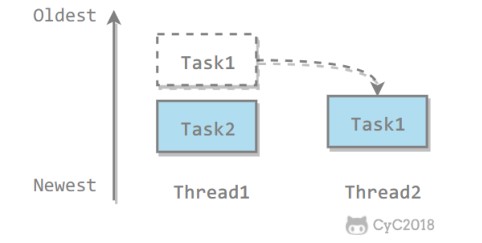
public class ThreadUnsafeExample { private int cnt = 0; public void add() { cnt++; } public int get() { return cnt; }
public static void main(String[] args) throws InterruptedException { final int threadSize = 1000; ThreadUnsafeExample example = new ThreadUnsafeExample(); final CountDownLatch countDownLatch = new CountDownLatch(threadSize); ExecutorService executorService = Executors.newCachedThreadPool(); for (int i = 0; i < threadSize; i++) { executorService.execute(() -> { example.add(); countDownLatch.countDown(); }); } countDownLatch.await(); executorService.shutdown(); System.out.println(example.get()); } }
996
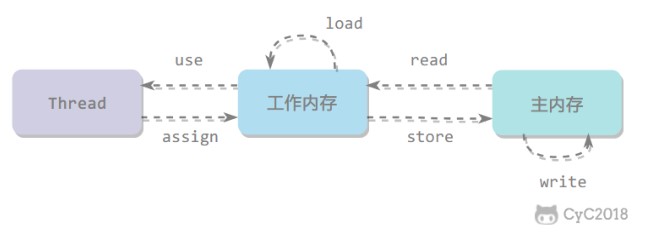
public class AtomicExample { private AtomicInteger cnt = new AtomicInteger(); public void add() { cnt.incrementAndGet(); } public int get() { return cnt.get(); }
public static void main(String[] args) throws InterruptedException { final int threadSize = 1000; AtomicExample example = new AtomicExample(); // 只修改这条语句 final CountDownLatch countDownLatch = new CountDownLatch(threadSize); ExecutorService executorService = Executors.newCachedThreadPool(); for (int i = 0; i < threadSize; i++) { executorService.execute(() -> { example.add(); countDownLatch.countDown(); }); } countDownLatch.await(); executorService.shutdown(); System.out.println(example.get()); } }
1000
public class AtomicSynchronizedExample { private int cnt = 0; public synchronized void add() { cnt++; } public synchronized int get() { return cnt; }
public static void main(String[] args) throws InterruptedException { final int threadSize = 1000; AtomicSynchronizedExample example = new AtomicSynchronizedExample(); final CountDownLatch countDownLatch = new CountDownLatch(threadSize); ExecutorService executorService = Executors.newCachedThreadPool(); for (int i = 0; i < threadSize; i++) { executorService.execute(() -> { example.add(); countDownLatch.countDown(); }); } countDownLatch.await(); executorService.shutdown(); System.out.println(example.get()); } }
1000
public class ImmutableExample { public static void main(String[] args) { Map<String, Integer> map = new HashMap<>(); Map<String, Integer> unmodifiableMap = Collections.unmodifiableMap(map); unmodifiableMap.put("a", 1); } } Exception in thread "main" java.lang.UnsupportedOperationException at java.util.Collections$UnmodifiableMap.put(Collections.java:1457) at ImmutableExample.main(ImmutableExample.java:9)
public V put(K key, V value) { throw new UnsupportedOperationException(); }
private AtomicInteger cnt = new AtomicInteger(); public void add() { cnt.incrementAndGet(); }
public final int incrementAndGet() { return unsafe.getAndAddInt(this, valueOffset, 1) + 1; }
public final int getAndAddInt(Object var1, long var2, int var4) { int var5; do { var5 = this.getIntVolatile(var1, var2); } while(!this.compareAndSwapInt(var1, var2, var5, var5 + var4)); return var5; }
public class StackClosedExample { public void add100() { int cnt = 0; for (int i = 0; i < 100; i++) { cnt++; } System.out.println(cnt); } }
public static void main(String[] args) { StackClosedExample example = new StackClosedExample(); ExecutorService executorService = Executors.newCachedThreadPool(); executorService.execute(() -> example.add100()); executorService.execute(() -> example.add100()); executorService.shutdown(); }
100 100
public class ThreadLocalExample { public static void main(String[] args) { ThreadLocal threadLocal = new ThreadLocal(); Thread thread1 = new Thread(() -> { threadLocal.set(1); try { Thread.sleep(1000); } catch (InterruptedException e) { e.printStackTrace(); } System.out.println(threadLocal.get()); threadLocal.remove(); }); Thread thread2 = new Thread(() -> { threadLocal.set(2); threadLocal.remove(); }); thread1.start(); thread2.start(); } }
1
public class ThreadLocalExample1 { public static void main(String[] args) { ThreadLocal threadLocal1 = new ThreadLocal(); ThreadLocal threadLocal2 = new ThreadLocal(); Thread thread1 = new Thread(() -> { threadLocal1.set(1); threadLocal2.set(1); }); Thread thread2 = new Thread(() -> { threadLocal1.set(2); threadLocal2.set(2); }); thread1.start(); thread2.start(); } }
/* ThreadLocal values pertaining to this thread. This map is maintained * by the ThreadLocal class. */ ThreadLocal.ThreadLocalMap threadLocals = null;
public void set(T value) { Thread t = Thread.currentThread(); ThreadLocalMap map = getMap(t); if (map != null) map.set(this, value); else createMap(t, value); }
public T get() { Thread t = Thread.currentThread(); ThreadLocalMap map = getMap(t); if (map != null) { ThreadLocalMap.Entry e = map.getEntry(this); if (e != null) { @SuppressWarnings("unchecked") T result = (T)e.value; return result; } } return setInitialValue(); }
public static String concatString(String s1, String s2, String s3) { return s1 + s2 + s3; }
public static String concatString(String s1, String s2, String s3) { StringBuffer sb = new StringBuffer(); sb.append(s1); sb.append(s2); sb.append(s3); return sb.toString(); }

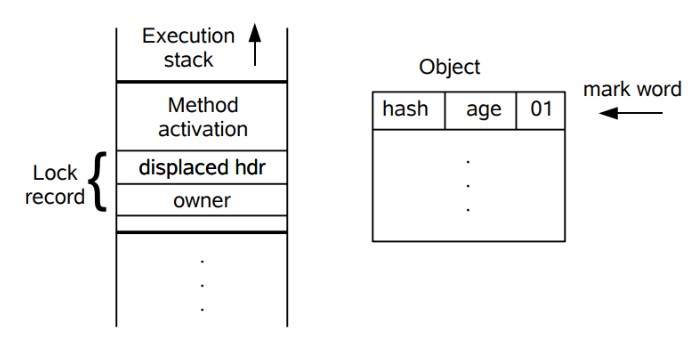
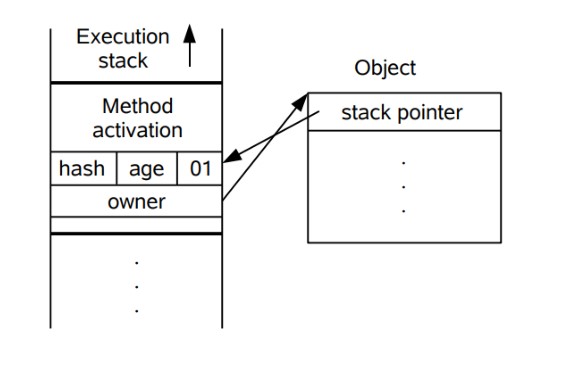
标签:mat 标识 return 无法访问 基本数据类型 park 崩溃 submit array
原文地址:https://www.cnblogs.com/hi3254014978/p/14151836.html